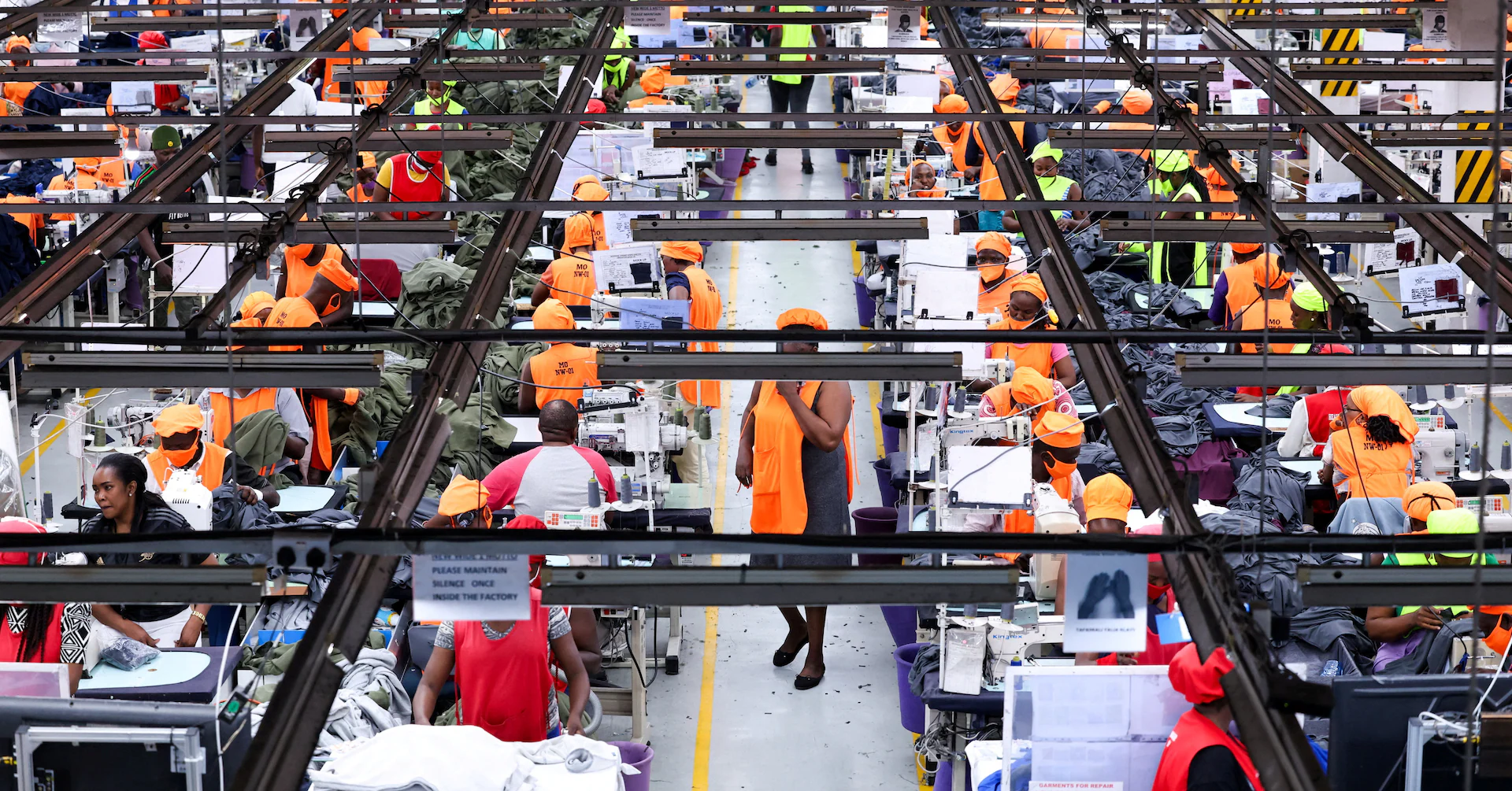
NAIROBI, Sept 23 (Reuters) – African officials and business executives are fretting over the impending expiry of a crucial, duty-free trade programme with the United States at the end of September, without any word from Washington on whether it will be extended or not.
Here are some questions and answers on the duty-free trade programme for qualifying products from eligible African nations, known as the African Growth and Opportunity Act, or AGOA.
Sign up here.
WHAT IS THE AGOA TRADE AGREEMENT?
AGOA has been the centrepiece of U.S. economic engagement with Africa since it was enacted in 2000, seeking to foster investments, job creation and economic growth through provision of access to the vast U.S. consumer market.
AGOA is a preferential trade deal, offering duty-free, quota-free access for thousands of products to the eligible 32 African nations.
In return, beneficiary nations are expected to adhere to certain eligibility requirements around maintaining market-based economies and good governance. States are also expected to eliminate barriers to U.S. investments and trade.
Washington has been carrying out regular reviews on compliance. Countries kicked out of the deal in recent years for non-compliance include Ethiopia, Mali and Uganda.
The deal was extended for a decade in 2015. However, a bipartisan effort to secure a further extension last year did not get a vote in Congress. January’s return of President Donald Trump to the White House has further cast doubt on an extension, due to his tariff-driven trade stance.
HOW HAS THE TRADE DEAL BENEFITED AFRICAN ECONOMIES?
AGOA is credited with helping African nations increase U.S. exports, attracting investments and jobs.
The value of U.S. imports from AGOA beneficiaries rose 37% in the period from 2001 to end-2021, a U.N. trade agency study showed. The imports more than doubled when stripping out fluctuating U.S. demand for Angolan and Nigerian petroleum products.
South Africa, the continent’s most industrialised economy, enjoyed the lion’s share of the benefit. But economies including Kenya have been able to diversify exports away from raw commodities by focusing on finished apparel.
Average annual U.S. imports of $37.7 billion from AGOA nations in 2001-2021 amounted to around five times annual average U.S. aid extended to the countries of $7.6 billion, the U.N. found.
The deal also boosted economic growth, the office of the United States Trade Representative says, and helped foster economic and governance reforms.
The trade agreement has also provided a key source of hard currency for many economies on the continent that struggle with shortages of dollars for their international obligations.
HOW ARE PARTIES HANDLING THE IMMINENT EXPIRY?
The U.S. government has not yet commented on the reauthorisation of AGOA.
Trade Representative Jamieson Greer has publicly said in the past that an extension was not a priority for the current administration, which is focusing on bilateral discussions and trade deals with individual nations.
On Africa’s side, the nature of AGOA as a regional preferential trade programme with eligibility criteria at Washington’s discretion means countries have not been able to put up a united negotiating front.
Kenya, which started trade talks with Washington in 2020, is looking to strike a deal by year-end to safeguard a market that accounts for 10% of annual exports.
South Africa, whose goods face 30% tariffs in the U.S. compared with Kenya’s 10%, is also racing to clinch a deal with one of its key export markets.
HOW WOULD THE ABRUPT EXPIRY OF THE DEAL AFFECT AFRICA?
The loss of unlimited, duty-free access to the U.S. market for thousands of products made in Africa, already hampered by imposition of tariffs, would cut exports, curb investments and threaten jobs.
Africa’s annual exports to the U.S. could reduce by about a quarter, representing a 1% reduction in total exports to the world, preliminary research by London-based Africa consultancy Development Reimagined shows.
The African Development Bank has already cut its Africa growth forecast, citing trade and tariff turmoil.
In Kenya, the sudden end of the deal would endanger 300,000 direct and indirect jobs in the textiles and apparel sector, said Trade Minister Lee Kinyanjui.
Analysts estimate tens of thousands of jobs would also be lost in South Africa, where the economy is barely growing and unemployment is stuck above 30%.
The looming expiry also creates uncertainty for U.S. companies and its termination would harm Washington’s geopolitical interests, said the U.S. Chamber of Commerce in a letter to congressional leaders, urging its swift reauthorisation.
Reporting by Duncan Miriri in Nairobi; Additional reporting by Andrea Shalal in Washington; Editing by Karin Strohecker and Lincoln Feast



